Explore the magic of herbs for soup with our delightful recipes and tips. Elevate your soup game with the best herbs for soup to add a burst of flavor in every spoonful!

In the world of cozy comfort food, nothing beats a steaming bowl of soup on a chilly day.
Take that comforting goodness to the next level with the aromatic touch of fresh herbs.
Herbs aren’t just a garnish; adding the right herbs to your soups is a great way to add flavor and turn them into unique creations.
Whether you’re a fan of hearty stews or light broths, the right combination of herbs to put in your delicious homemade soup can elevate soup experience and turn a simple dish into a gourmet delight.
So, what is a good herb to add to soup? There is a wide variety when using herbs in soups that can range from sweet and aromatic, to savory and spicy – allowing for endless possibilities! They really are a magic ingredient!
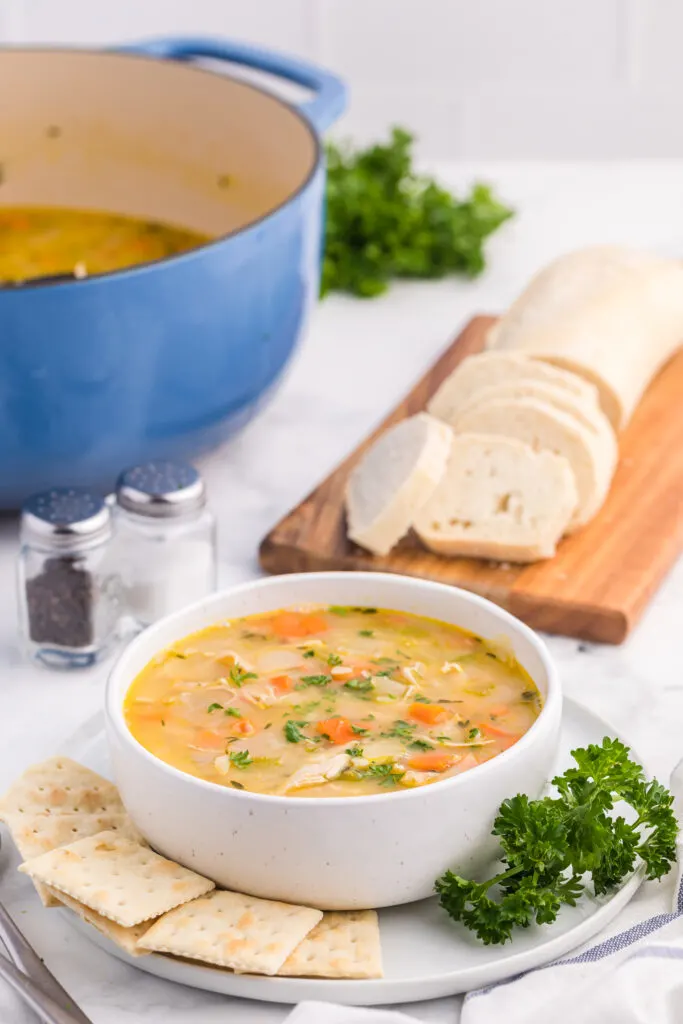
What Herbs Go Well in Soup?
Here are some different herbs that go particularly well in soup:
Thyme
Thyme adds a subtle, earthy flavor that can really brighten up a soup. To use thyme in soup, add a teaspoon of dried thyme or a tablespoon of fresh thyme during the last 10 minutes of cooking. Thyme is a versatile herb that can be used in a variety of soups, such as tomato soup, chicken soup, French onion soup or New England Clam Chowder.
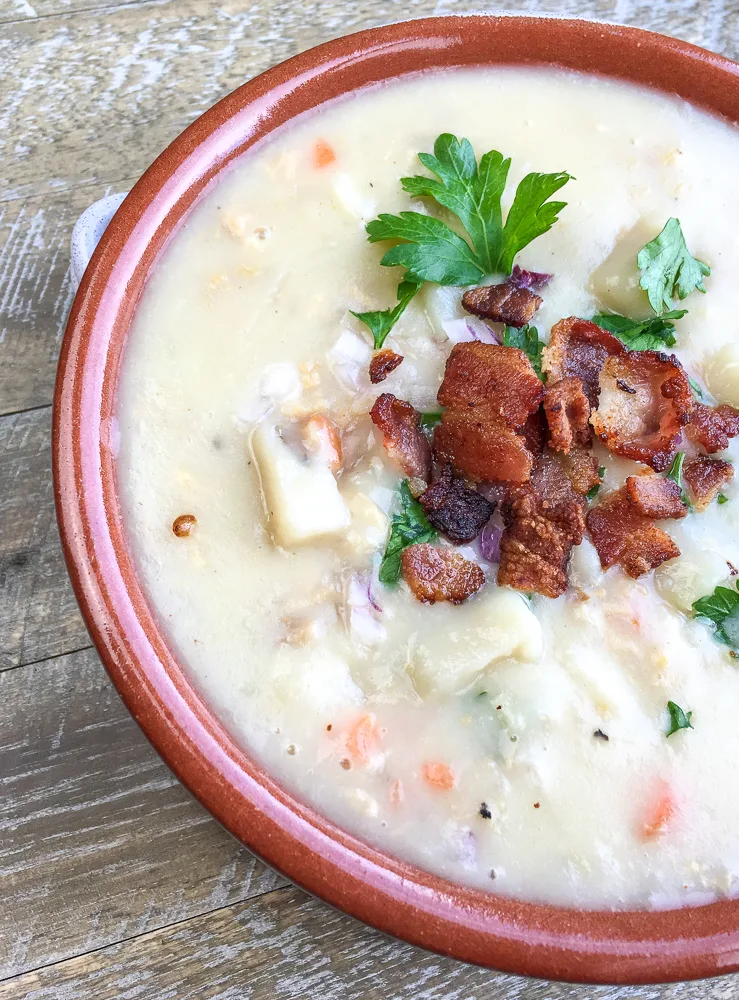
Bay Leaves
Bay leaves are a popular herb used in soups because they add a unique and subtle flavor to the dish. Bay leaves have a slightly sweet and floral flavor with a hint of bitterness. When added to soups, a bay leaf can infuse the broth with its flavor, creating a more complex and rich taste.
Bay leaves are not typically eaten, as they can be tough and have a slightly bitter taste. The best way to use bay leaves is to add them at the beginning of cooking so that their flavor has time to infuse into the dish and then are removed at the end of the cooking process.
Rosemary
Rosemary has a strong aroma that is pungent and pine-like in flavor. It’s a great addition to soups like a creamy potato soup or hearty soups like beef stew or lentil soup.
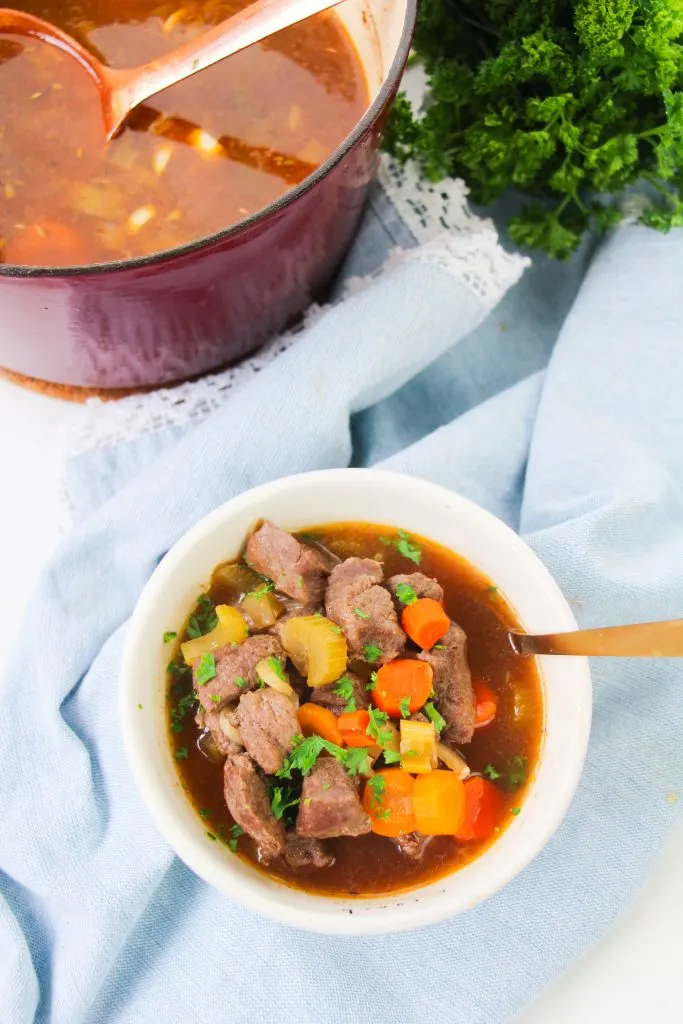
Sage
Sage leaves have a slightly sweeter flavor than thyme and rosemary, making it perfect for creamier soups. A little sage goes a long way in giving your soup an earthy depth of flavor. It’s especially good in meaty soups with beans or winter vegetables like chili.
Parsley
This humble herb is often used as a garnish, but it’s so much more than that! Parsley has a fresh, bright flavor that pairs well with almost anything, making it a great choice for soups of all kinds.
Cilantro
The robust flavor of Cilantro is used in a variety of dishes. It has a distinctive, citrusy flavor and is often used in Mexican or Asian-inspired soups and is a popular garnish for types of soups such as chili or tortilla soup.
Dill
Dill has a tangy, slightly sweet flavor that pairs well with middle eastern dishes and creamy soups such as potato or with fish-based soups such as a chowder or bouillabaisse. Overall, dill is a flavorful and healthy herb that can add a lot of depth and complexity to soups.
Basil
Fresh Basil adds a sweet, slightly spicy flavor that is often used in tomato-based soups or an Italian vegetable soup such as minestrone.
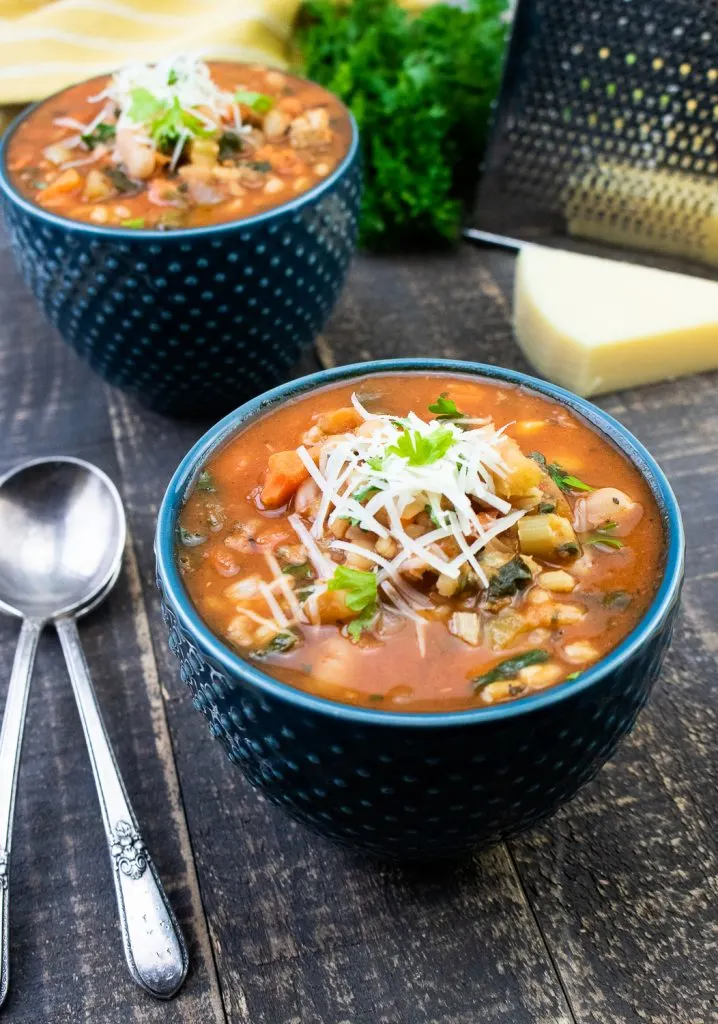
Relevant Recipes
- The Best Soup Recipes
- Cooking with Fresh Herbs
- Homemade Chicken Noodle Soup
- Cooking with Popular Herbs & The Best Spices
- How to Make Herb Butter with Dried Herbs
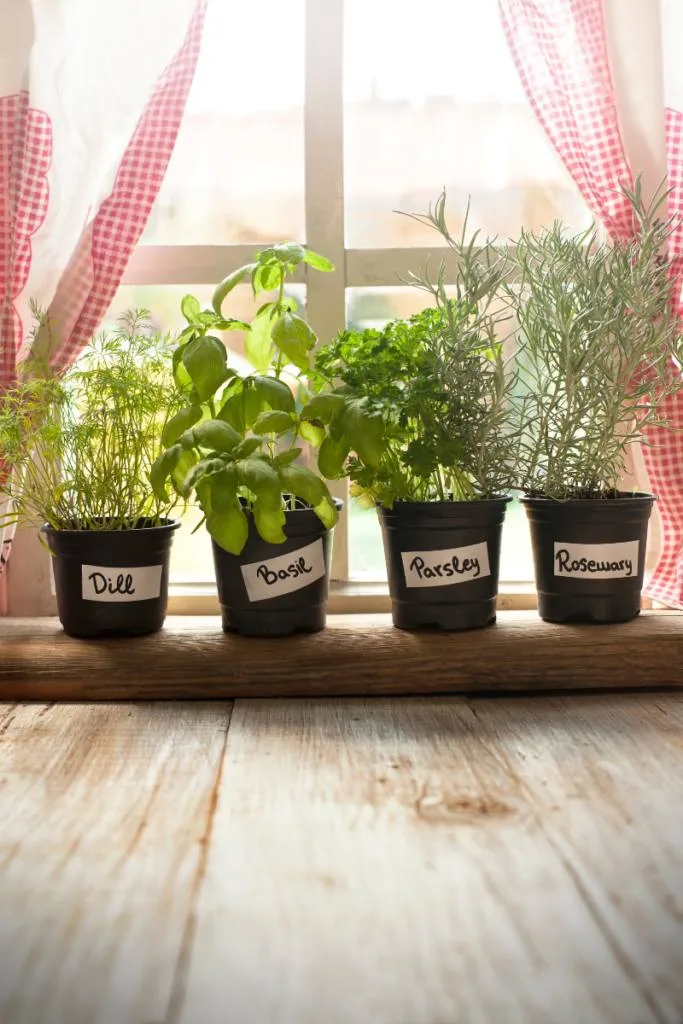
How to use Fresh Herbs for Soup
Use about 1 teaspoon of fresh herb per cup of soup, or 1/4 teaspoon of dried herb per cup of soup. Taste as you go and add more or less of any given herb according to your own preferences.
Start by adding just a small amount of herb, then taste and adjust as needed. It’s easier to add more later on than it is to take away too much flavor.
Soup Herbs FAQs
When to add fresh herbs to soup?
Fresh herbs are best added to soup towards the end of cooking for a deeper flavor. Incorporating fresh herbs too early in the cooking may cause them to lose their potency and result in a milder taste.
For optimal flavor, add fresh herbs during the last 10-15 minutes of simmering or cooking. This allows the herbs to infuse the soup with their essence without being subjected to prolonged heat. Additionally, garnishing with a sprinkle of fresh herbs just before serving enhances the visual appeal and ensures a burst of freshness in every spoonful.
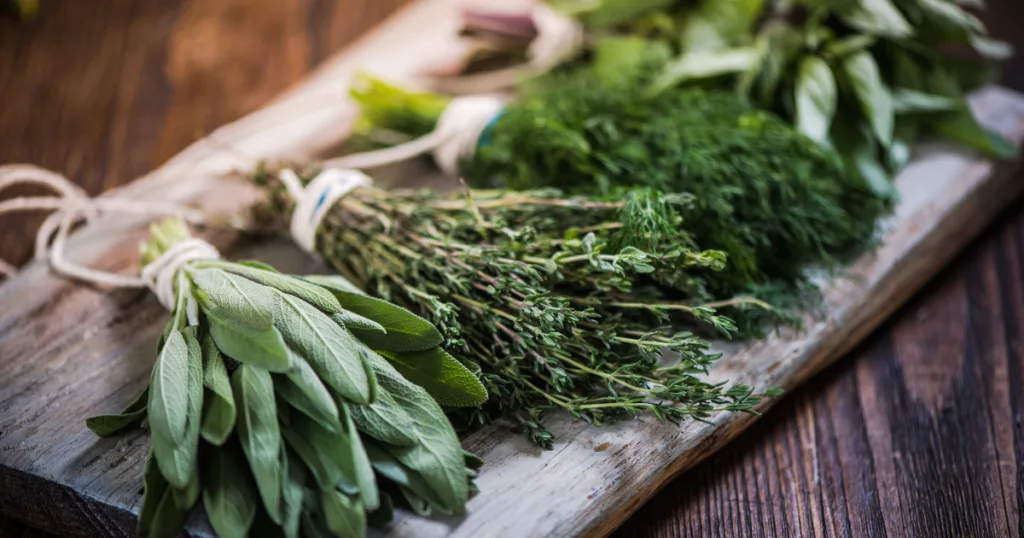
How do I prepare herbs for use in soup?
There are a few things to keep in mind when preparing herbs for use in soup. Here’s a step-by-step guide on how to prepare herbs for use in soup:
- Start by Wash the herbs thoroughly under running water. This will remove any dirt or debris from the leaves.
- Next, using a sharp knife, chop the herbs as finely as possible. The smaller the pieces, the more flavor they will release into the soup.
- Finally, add the chopped herbs to the soup during the last few minutes of cooking so they don’t lose their flavor.
How do I store herbs so they stay fresh?
If you don’t properly store fresh herbs, they can quickly lose their flavor and become wilted and lifeless. Here are some tips for storing your herbs so they stay fresh:
- Herbs will last longer if you store them in the fridge, in a moisture-proof container. Place them in a single layer on a paper towel or kitchen towel, then wrap the towel around the herbs and place in a sealed container. Check on them every few days and replace the paper towel if it becomes damp.
- Another option is to freeze your herbs. Start by chopping them up into small pieces, then place them in an ice cube tray covered with water or olive oil. Once frozen, transfer to a freezer bag and label with the date. When you’re ready to use, just pop out an herb cube and add it to your dish!
Contains affiliate links.
